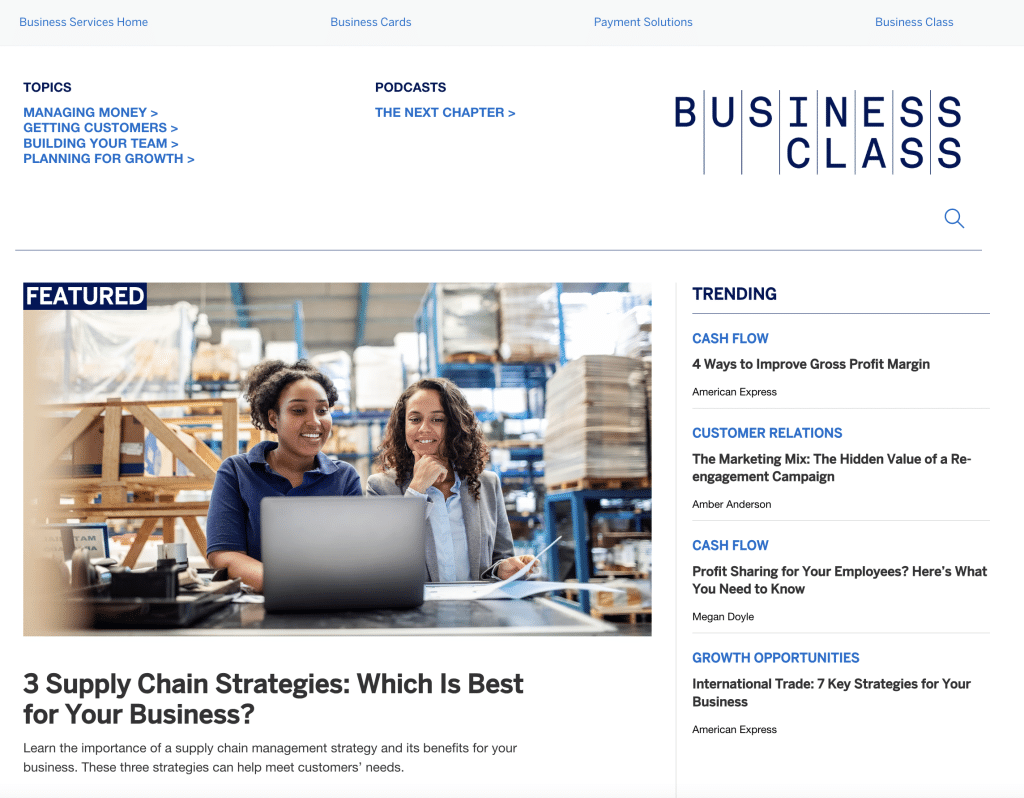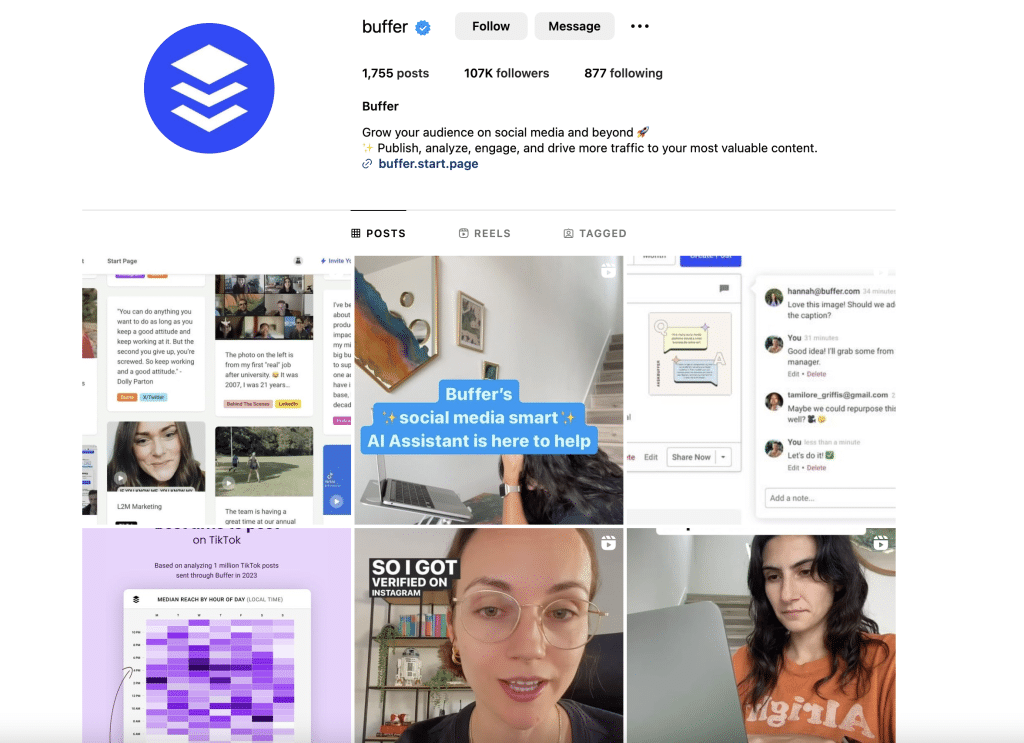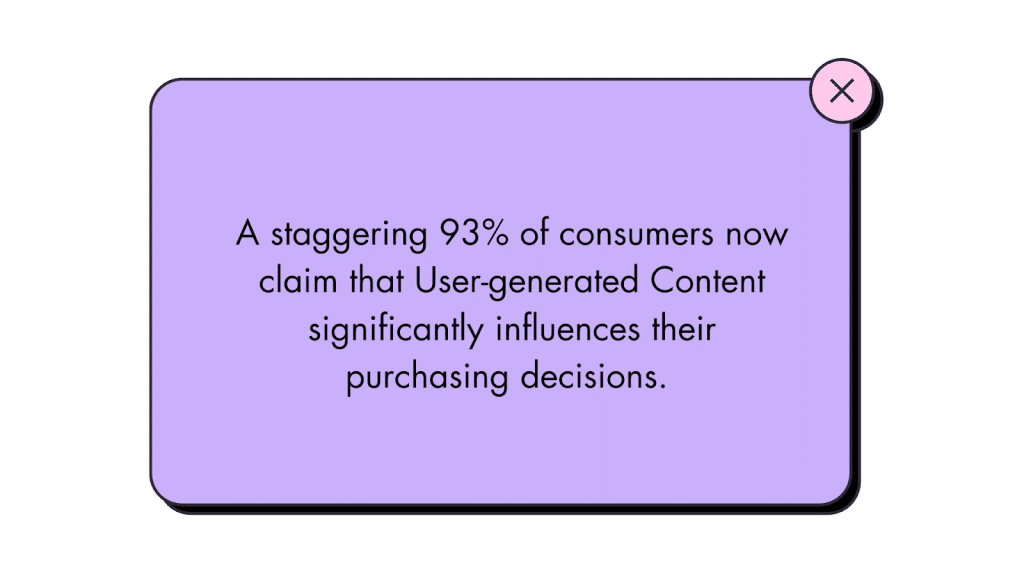
10 Ways To Humanize Your Content
At Marketing Insider Group, we’re all about quick communication. But here’s the catch: To truly connect with your audience, you need to humanize your content.
You might think that going full-on tech with your marketing is the way forward. Sure, tech has its perks, but giving your content a human touch could take you even further.
Now, let’s strip it down to the basics: How do you start humanizing your content? We’ve talked about breaking through the noise with humanized content before, starting with what ‘humanize’ actually means. It’s about making things more relatable and giving your content a human feel.
So, why does this matter for your business? It’s simple: When your brand feels more human, your marketing resonates more, making a bigger splash and drawing in more business. This human touch is essential in today’s marketing world.
Let’s dive into some content guidelines, tips, and examples to help you bring that human element to your content:
1. Commit to the long-term approach of content marketing
When you commit to the long-term approach, you can boost the ROI of your business. This happens because you’re operating on a different timeline than the traditional advertising approach.
Advertising is the loud, rapid-fire way to “make noise” for your business. Content marketing is the more quiet (and often slower) way to convert leads. This has the added benefit of making your marketing more unique and engaging through thought-provoking online conversations around your industry.
A great example of a company who took the long-term approach to content marketing is American Express with its Business Class.

Image Source: American Express
They’ve created an online community where small business leaders can ask experts for advice and share knowledge. Community managers facilitate conversations and help users connect in the most meaningful ways possible.
When you take the long-term route, you build brand advocates and make your message more meaningful.
Tip: Have patience.
Patience is one of the most important qualities that you need to humanize your brand. Here’s why: If you’re a more traditional marketer, you’re probably used to seeing results right away with your marketing efforts. And while it’s only natural to doubt your strategy if you don’t see immediate success, you’ll want to learn how to see it through.
Think of using social to build relationships as taking the more scenic route. You may not get to your destination as quickly, but when you do, you will have enjoyed the ride.
2. Provide journalistic value
Content marketing allows leaders in an industry to communicate their expertise directly to their readers. This can often provide more informational value than if it came from traditional news media. When your content marketing provides more insight into issues in the news than many of the reporters who are covering that same news, you’re providing solid journalistic value.
For example, The Law Practice Podcast nails humanized content by showcasing how a lawyer uses content marketing to provide value to his audience (yours truly is featured in one of these episodes!)
This podcast engages in meaningful conversations around how to successfully market the (often dry) industry of law.
Tip: Think like an editor.
The future of branded content is in the ability to think like an editor. When you use this approach, you start to seek out insightful conversations to develop the most compelling content for your business. This puts you more in touch with consumer trends.
According to trendwatching.org, a consumer trend is “a new manifestation among people – in behavior, attitude or expectation – of a fundamental human need, want or desire.” Consumer trends are the secret sauce to evolving your business.
3. Use social to build relationships (not to pitch your product or services)
Many businesses today think that social media is the place to sell. Breaking news! It’s not.
While selling on social media is necessary (sometimes), it’s often seen as ugly noise in the ears of your customers. It makes them tune out. If you’re selling on social media (and you’re not bringing in business) it’s time to rethink your approach.
Instead, use social media as a way to build relationships with customers and fellow business owners. When you stop “screaming” by selling your services on social media, you’ll start to take the more scenic route with your marketing – and win more business.
For example, Buffer is one brand who does this right. They share transparently about all aspects of what they’re doing – and they use it to connect and learn from others.

Image Source: Buffer
Tip: Make sure you’re responding on social.
Social media is a way to connect and build meaningful relationships. While everyone likes to communicate on different platforms, make sure that you stay consistent with how (and when) you interact with your audience.
4. Curate your content accordingly
Content curation is the process of sorting through the vast amounts of content on the web and presenting it in a meaningful and organized way around a specific theme. According to The Content Marketing Institute, a full 85% of content marketers rely directly on curated content as part of content marketing.
You may already be aware of the need to “curate content” today. And while this is solid advice, it’s easy to get stuck in the vicious cycle of sharing every article that you come across. But when you curate your content in this way, it means that you’re adding more noise to the already noisy mess that is the Internet. To stand apart from the noise, you’ll want to look to brands who are curating accordingly.
Believe it or not, Pinterest is one of the most powerful content creation tools that you can use today. Pinterest provides a ton of quality content to pull from with the added benefit of having the guided search option so that you can find things more easily. For example, I did a search on “content marketing” in Pinterest and found a number of helpful infographics and articles on this topic.
Tip: Use the right metrics.
Make sure that you use the right content metrics so that you can assess the real impact of your curation.
5. Create experiences
When you create experiences around your brand, you not only provide useful information, but you also entertain. This leads to more awareness for your brand and fun experiences for everyone involved. Warby Parker nails this marketing strategy by creating remarkable experiences around the process of buying eyeglasses.
For example, in this video the head of online experience, Tim Riley, tells the narrative of the company and explains the importance of continuing to create these experiences for their customers through using hashtags and social media.
Video Source: AIGA Design
Tip: Do the unexpected.
Warby Parker’s annual reports include things like what bagels they ate, and what were the most popular misspellings of the brand. They clearly have fun and they’re not afraid to share this “fun” with others.
6. Leveraging AI for Personalization
In the realm of content marketing, AI’s power to personalize is a game changer. With over half of business leaders already using AI for content strategy, it’s clear that AI-driven personalization is key to modern marketing success.
AI excels in analyzing customer data, crafting content that deeply resonates with individual preferences, and enhancing user engagement. It’s not just about delivering content. It’s about delivering the right content to the right person at the right time.
Tip: Utilize AI for Targeted Content
To properly leverage AI, focus on creating content that is not only tailored, but also respects user privacy. With AI’s impressive 186% annual growth rate in marketing, its impact on sales and customer retention is undeniable. AI enables marketers to deliver a personalized user experience while navigating the challenges of today’s digital landscape.
7. Interactive Content
Interactive content has become a cornerstone of effective content marketing. It generates 4-5 times more pageviews than static content, highlighting its significant impact on audience engagement. Buzzfeed’s massive 96.1 million visits, driven primarily by quizzes, exemplifies the power of interactive content in capturing and retaining user attention.

Image Source: The Independent
Tip: Engage Your Audience with Interactive Elements
At Marketing Insider Group, we recommend incorporating interactive elements like quizzes, polls, and infographics into your content. This not only engages your audience, but also provides valuable insights into their preferences and behaviors. Remember, 66% of marketers have reported a rise in engagement rates due to interactive content.
8. Voice and Conversational Technology
Voice search optimization and conversational AI are redefining user interactions in the digital space. To understand the significance, consider that 41% of US adults use voice search daily, emphasizing the growing reliance on voice technology for online activities.
Tip: Optimize for Voice and Foster Conversations
We advise optimizing your content for voice search and integrating conversational AI to enhance accessibility and create more natural, human-like interactions. This approach not only caters to the preferences of modern users, but also positions your brand at the forefront of technological advancements.
9. Storytelling Through Data Visualization
Data visualization is a compelling way to tell a story. By turning complex data into visual narratives, businesses can engage audiences effectively.
Real-time data visualization, for example, is increasingly crucial, with 78% of survey participants acknowledging its importance for revenue growth. Moreover, animated and interactive visualizations are becoming key tools in storytelling, capturing the viewer’s attention and making complex data understandable and engaging.
Tip: Utilize Visuals to Narrate Your Data
To harness the power of data storytelling, focus on creating visualizations that are not just informative but also engaging and interactive. This approach caters to the 65% of the population who are visual learners and prefer learning through video formats.
A well-crafted data visualization can simplify complex information and make your message more memorable.
10. User-Generated Content (UGC) and Community Building
UGC is a powerful tool in content marketing. It not only adds authenticity to your brand, but also fosters a sense of community among your customers. UGC is considered more trustworthy than brand-created content, with 93% of consumers finding it more influential when making purchasing decisions.

Image Source: Taggbox
By showcasing customer stories, reviews, and testimonials, you can build a deeper connection with your audience.
Tip: Encourage and Showcase UGC
Invite your audience to share their experiences with your brand and showcase these stories prominently. This not only enhances the credibility of your brand, but also strengthens your community. Authentic UGC can really influence potential customers and reinforce the loyalty of existing ones.
Humanize Your Content Today with MIG
To humanize content, brands need to embrace strategies that resonate on a human level. This approach isn’t just about leveraging technology. It’s about creating genuine connections.
By focusing on personalization, interactive elements, relatable storytelling, and encouraging user-generated content, brands can engage their audience in a meaningful way.
Remember, at the heart of humanizing your content is the goal of building real relationships with your customers. Make your brand not only seen, but also felt, leading to deeper engagement and lasting business success.
Ready to humanize your content? Check out our SEO Blog Writing Service or schedule a quick consultation to learn more about how Marketing Insider Group can help you earn more leads for your business.






